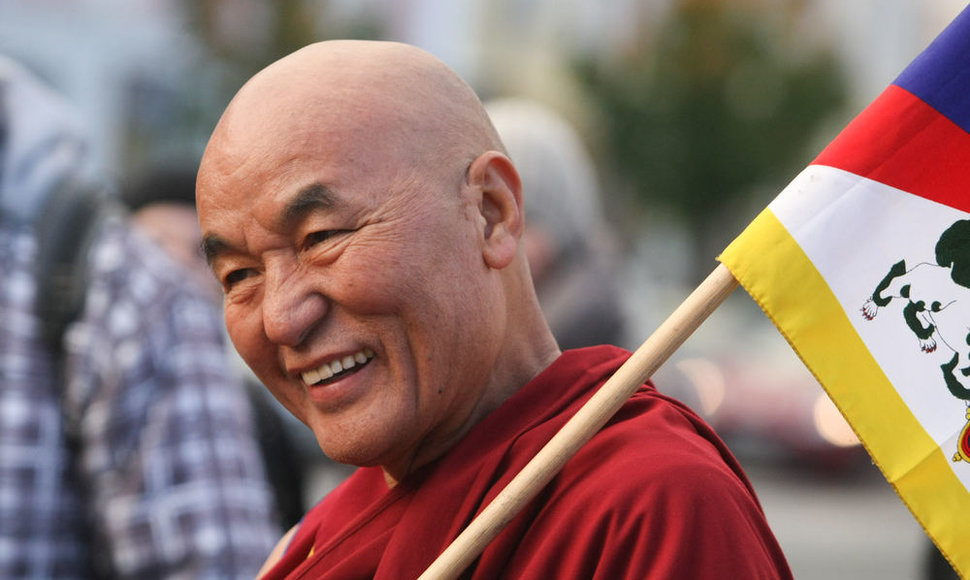"We, Tibetans, are not against the Chinese public, Chinese people, we have no problems with the Chinese citizens, but we have a big problem with the Chinese government policy, what they are doing in China and Tibet," the monk said.
According to information provided by Wangchen, who is in Lithuania to present his global series of events Flame of Truth, 54 Tibetans set themselves on fire in the region in the Himalaya mountains over the past few years in protest of Chinese repressions.
"Until now, there were 54 young Tibetans, mostly monks and nuns, who offered their lives for Tibet and burned themselves," said the representative of Tibet's Parliament-in-Exile.
According to him, there is no respect for human rights in Tibet, where unloyal people are put to jail. Freedom of movement, religion, and education is not guaranteed in Tibet, he has said, and the Chinese government controls the media and all Tibetan monks and lamas, wants to oust the Tibetan language from schools, while Tibetans are a minority in their country.
He said ecology was yet another major problem: China had no interest in protecting Tibet's nature – it was cutting old trees, exhausting rivers, and burying radioactive waste. "This is not only danger for Tibet, bus for the whole world in the future," Wacheng said.
Tibetans do not expect to be granted independence but continue asking for autonomy, at least, and guaranteed fundamental rights.
He said his tour of Europe with the symbolic Flame of Truth was aimed at raising public awareness about the Tibetan tragedy and drawing the attention of the United Nations (UN) and the global community.
"Until now, we have had a very good response from every country, especially from the Baltic countries," he told journalists in Lithuania.
Lithuania officially considers Tibet as part of China. However, it joins other countries of the European Union (EU) in speaking up for peaceful regulation of relations between the Chinese administration and Tibet's spiritual leader Dalai Lama and his representatives.


















